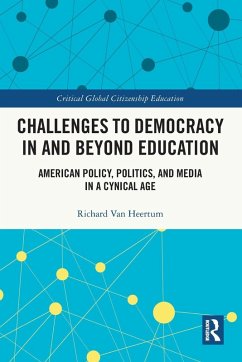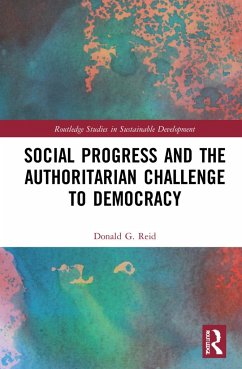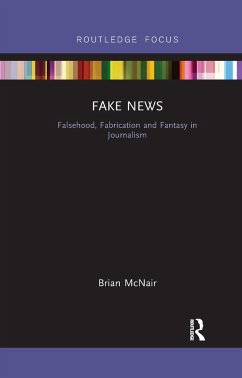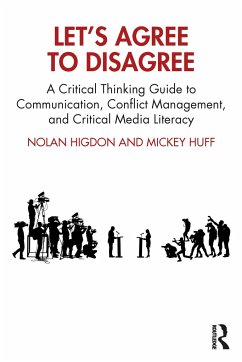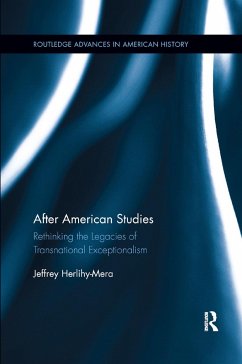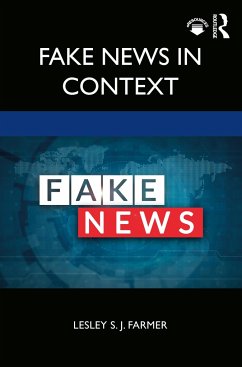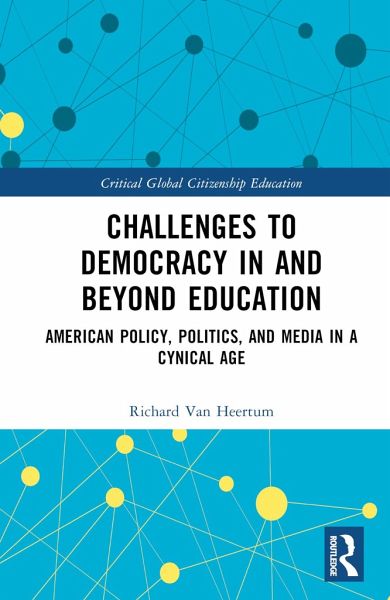
Challenges to Democracy In and Beyond Education
American Policy, Politics, and Media in a Cynical Age
Versandkostenfrei!
Versandfertig in 6-10 Tagen
144,99 €
inkl. MwSt.
Weitere Ausgaben:

PAYBACK Punkte
72 °P sammeln!
This book explores political cynicism as a driving force at the heart of the current crisis of democracy in the United States, focusing on the crisis and the role of education, popular culture and news media in fostering and fighting cynicism.In this unique text, Van Heertum draws on historical and contemporary data, policy, and current events to map the growth of a cynicism that risks undermining the democratic principles upon which American society is built. Tracing the philosophical, social and historical origins of an "ubiquitous cynicism" cultivated in political discourse, media and educa...
This book explores political cynicism as a driving force at the heart of the current crisis of democracy in the United States, focusing on the crisis and the role of education, popular culture and news media in fostering and fighting cynicism.
In this unique text, Van Heertum draws on historical and contemporary data, policy, and current events to map the growth of a cynicism that risks undermining the democratic principles upon which American society is built. Tracing the philosophical, social and historical origins of an "ubiquitous cynicism" cultivated in political discourse, media and educational policy, the chapters then explore avenues to challenge cynicism and restore hope through a more affirmative discourse, aesthetic education, media and educational reform, challenging rampant inequality, and methods to rein in corporate power. The book ultimately advocates for a radical democracy that can restore the power of the people to have a meaningful say in the decisions that affect their lives.
A timely and useful contribution to the field of education, this book will be of interest to postgraduate students and researchers in the fields of educational policy and politics, the sociology of education and American studies.
In this unique text, Van Heertum draws on historical and contemporary data, policy, and current events to map the growth of a cynicism that risks undermining the democratic principles upon which American society is built. Tracing the philosophical, social and historical origins of an "ubiquitous cynicism" cultivated in political discourse, media and educational policy, the chapters then explore avenues to challenge cynicism and restore hope through a more affirmative discourse, aesthetic education, media and educational reform, challenging rampant inequality, and methods to rein in corporate power. The book ultimately advocates for a radical democracy that can restore the power of the people to have a meaningful say in the decisions that affect their lives.
A timely and useful contribution to the field of education, this book will be of interest to postgraduate students and researchers in the fields of educational policy and politics, the sociology of education and American studies.




